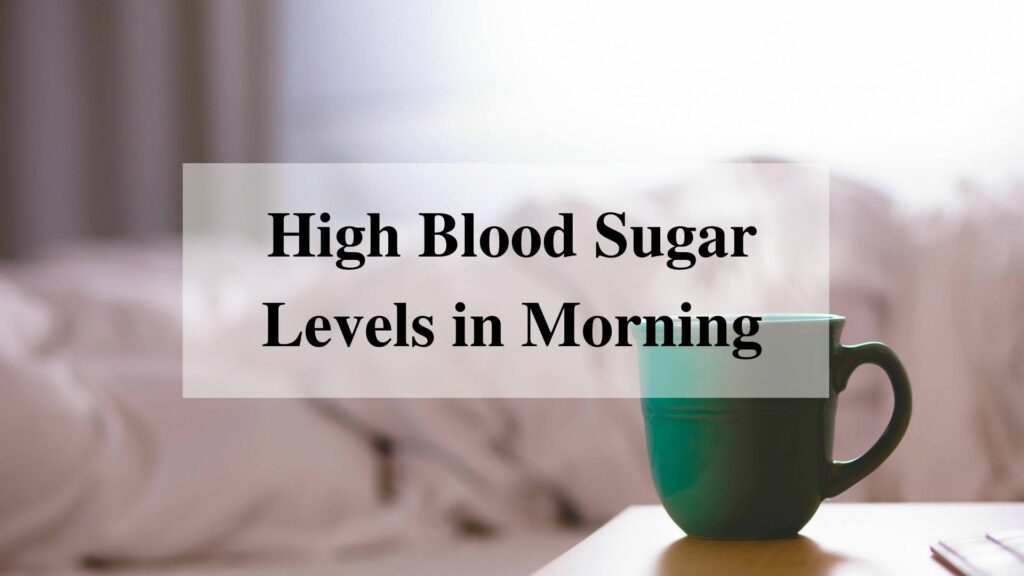Many people experience high blood sugar levels in the morning. This can be a cause for concern. However, there are some easy ways to manage it. that high blood sugar levels don’t interfere with your day.
The first step is simply to check your daily food intake. Also, make sure you’re not consuming high amounts of carbohydrates before bedtime. There’s nothing wrong with eating healthy carbs. However, many people have trouble sleeping if they eat too much late at night. This means that high blood sugar levels will occur early in the morning instead of later on in the day when your body has had time to process them all.
Contents
What Causes High Blood Sugar Levels in Morning
The majority of the time, your body’s natural hormonal changes in the morning raise blood sugar levels, whether you have diabetes or not. Your body just produces more insulin to bring everything back into balance. You won’t realize it’s happening.
However, if you have diabetes, things are a bit more complicated. Even though you follow a nutritious diet. Your fasting blood sugar level might rise even if you don’t take insulin properly.
The sugar surge is your body’s method of making sure you have the energy to get out of bed and begin your day. If you have diabetes, your body may not be producing enough insulin to counteract these hormones. This disrupts the delicate equilibrium that you work so hard to maintain. This further causes your blood sugar levels to be excessively high by morning.
Symptoms of High Blood Sugar Levels in Morning
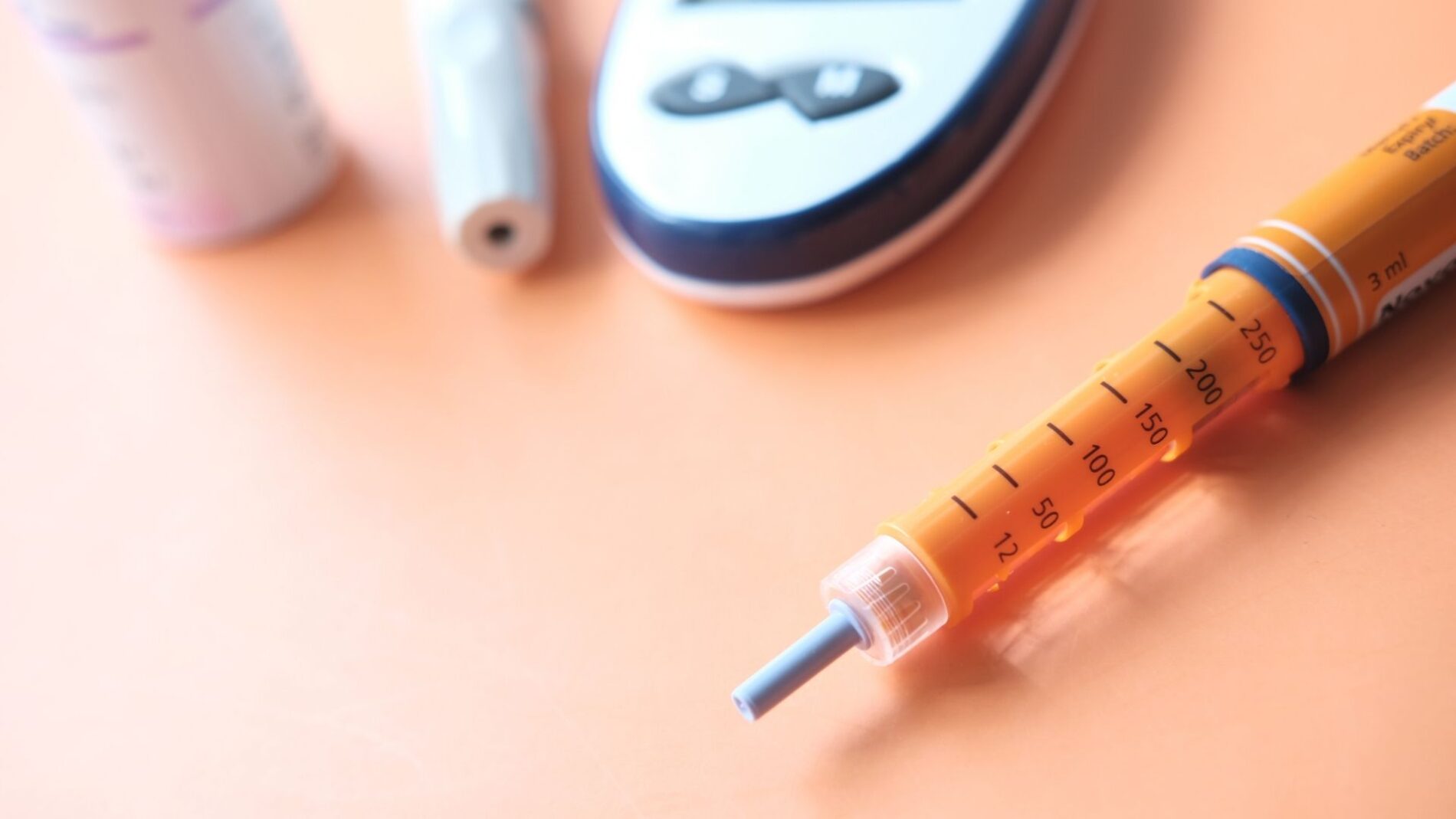
In the morning, a person’s blood sugar levels are generally somewhat higher. However, in certain persons with diabetes, these levels are considerably high.
Symptoms of diabetes can continue for long periods.
Carbohydrate-induced blood sugar imbalances may lead to a wide range of symptoms. These might get worse as time goes on, as a result of these blood sugar spikes.
Healthy blood sugar levels are defined as follows by the National Institute of Diabetes and Digestive and Kidney Diseases:
- Just before eating, from 80–130 mg/dl (mg/dl) 2 hours after eating, and below 180 mg/dl 2 hours following a meal.
- Furthermore, they observe that a blood sugar level of less than 70 mg/dl is “hypoglycemia.” A high blood sugar level is defined as anything over 180 mg/dL.
The dawn phenomenon, the Somogyi effect, and Waning insulin are the three primary causes of elevated blood sugar in the morning.
This article explores these causes. It will also include what they can mean for a person’s health and when to see a doctor.
What is the Dawn Phenomenon

High blood sugar levels are a common experience for those with diabetes, especially type I, diabetics. This article will explore what causes high blood sugars. It will also explore why they sometimes occur during the night or very early in the morning.
In people without diabetes, high glucose levels are usually the result of high carbohydrate intake. Such as from eating a large meal. In people without diabetes who have high glucose levels in the morning. It is often because they ate a larger-than-normal evening meal. They might have drank alcohol and didn’t move around much while they were digesting food. Because high blood sugar during sleep is usually the result of high carbohydrate intake, it is also called the “dawn phenomenon.”
People with diabetes have high blood sugar because their bodies either don’t make enough insulin or can’t use its action effectively to move glucose from the bloodstream into cells where it’s needed for energy. One way that people without diabetes can get high blood sugar is by eating high carbohydrate foods. Drinking high amounts of alcohol can also cause diabetes. In people without diabetes. High blood glucose levels typically last for a few hours after the meal. It returns to normal as insulin moves glucose from the bloodstream into cells where it’s needed for energy.
Dawn Phenomenon and High Blood Sugar Levels in Morning
People with type I diabetes don’t produce any insulin. This means they can not control high blood sugar levels after high carbohydrate intake. People with type II diabetes produce insulin but their bodies don’t respond well to it. Therefore high glucose is common in the mornings because of the dawn phenomenon or high evening meals, alcohol consumption, etc.
Even though high morning blood sugars can be frustrating for people without diabetes who have high glucose levels when they wake up. High morning blood sugars are common in people with diabetes.
There is no need to worry if you have high glucose levels when you wake up. Your body will return to normal within hours. There is nothing much that can be done about it. Managing the high carbohydrate intake during evenings or before going to bed will help.
What happens in Dawn Phenomenon
The body usually doesn’t require much insulin during sleep, and it makes less of this hormone. The body begins to release stored glucose, or sugar, toward the early morning as a source of energy for the following day.
At the same time, the body is producing another hormone, glucagon, which can lead to an additional rise in blood sugar levels.
It also generates cortisol, a stress hormone that works in the same way as insulin. This occurs as nighttime levels of insulin are beginning to decrease.
The increased insulin and decrease in glucagon and cortisol levels cause blood sugar to rise in the morning.
Blood glucose levels are typically 70 to 120 mg/dL, which is slightly more than the normal range of 60 to 110 mg/dL. In response to this change, some people without diabetes increase their insulin production. However, because diabetes prevents the body from doing so, others do not produce additional insulin.
According to the American Diabetes Association, the dawn phenomenon occurs between 5:00 a.m. and 8:00 a.m.
people suffering from pre-diabetes may also suffer from this condition in the morning.
Somoyogi Effect
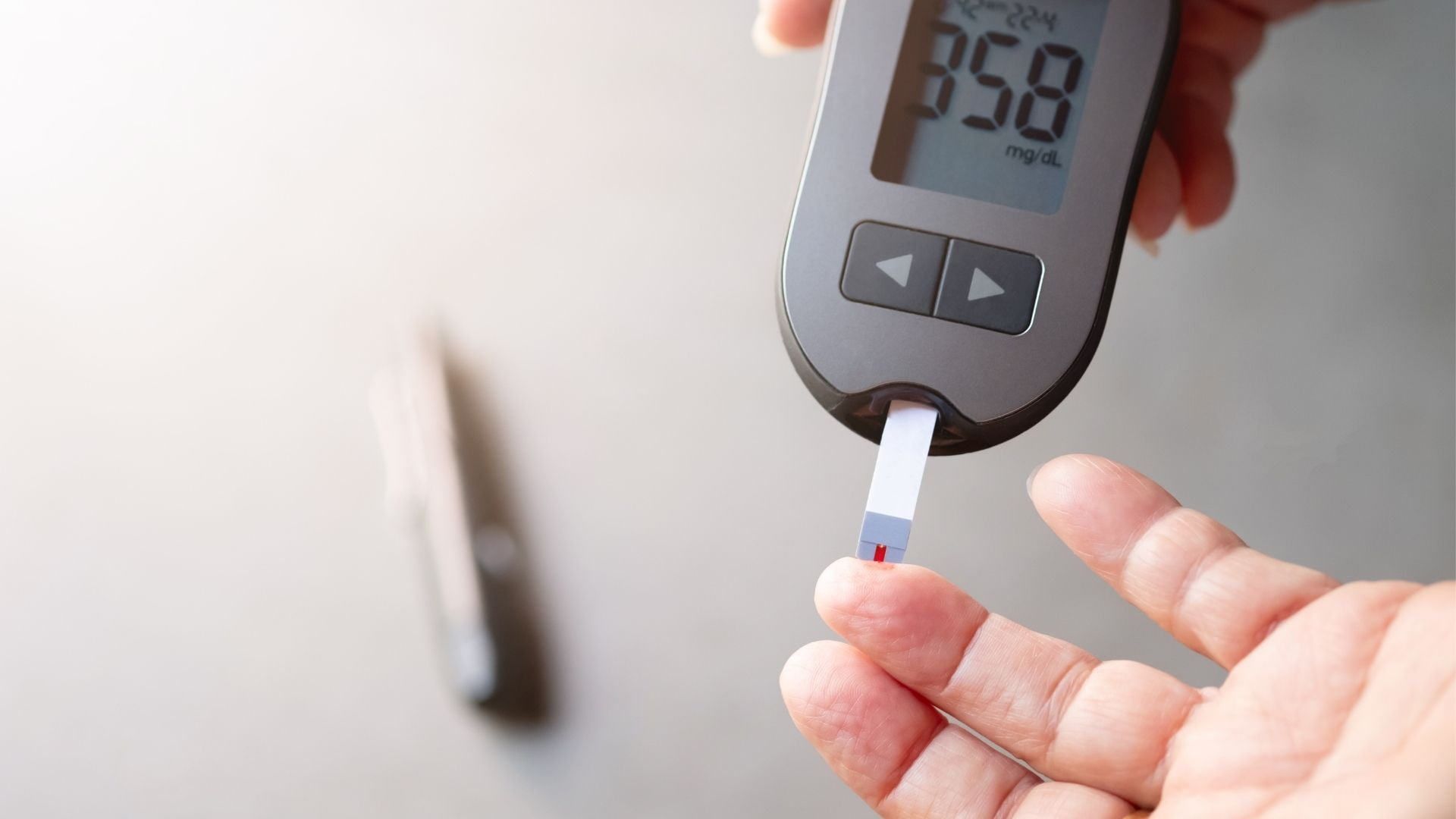
If you have high blood sugar levels in the morning, no worries. It is called the ‘somoyogi effect’ by doctors and it happens with everyone. The phenomenon of high blood sugar levels in the morning is the Somogyi effect. This happens when an individual with diabetes takes insulin but does not eat a regular evening meal. During the night, their body responds to low blood sugar by secreting hormones that raise their blood sugar level back up which can result in high blood glucose
Hormones (such as growth hormone, cortisol, and catecholamines) are released if the blood sugar level drops too low in the early morning hours. This helps to counteract the low blood sugar level but can result in higher than normal blood sugar levels in the morning. The Somogyi effect is an example of: When a person with diabetes takes insulin, they don’t eat a regular evening meal. During the night, the individual’s blood sugar level drops as a consequence of this.
The body responds to low blood sugar by secreting hormones that raise the blood sugar level. This might result in a high blood sugar level in the early morning hours.
What’s the difference between them
The Somogyi effect can occur at any time there is more insulin in the body. Check blood sugar levels at bedtime, around 2 a.m. to 3 a.m., and at your usual wake-up time for several nights to determine if an early morning high blood sugar level is due to the dawn phenomenon or the Somogyi phenomenon.
- If your blood sugar level drops below normal from 2 a.m. to 3 a.m., suspect the Somogyi effect.
- If the blood sugar level is okay or elevated from 2 a.m. to 3 a.m., it’s more than likely the dawn phenomenon.
The somoyogi effect is named after Michael Somogyi, Ph.D., a chemist who was the first to describe it in the 1930s.
According to a 2011 study, the dawn phenomenon is more common than the Somogyi effect. The dawn phenomenon occurs naturally, whereas the Somogyi effect typically occurs as a result of poor diabetes management.
Waning Insulin
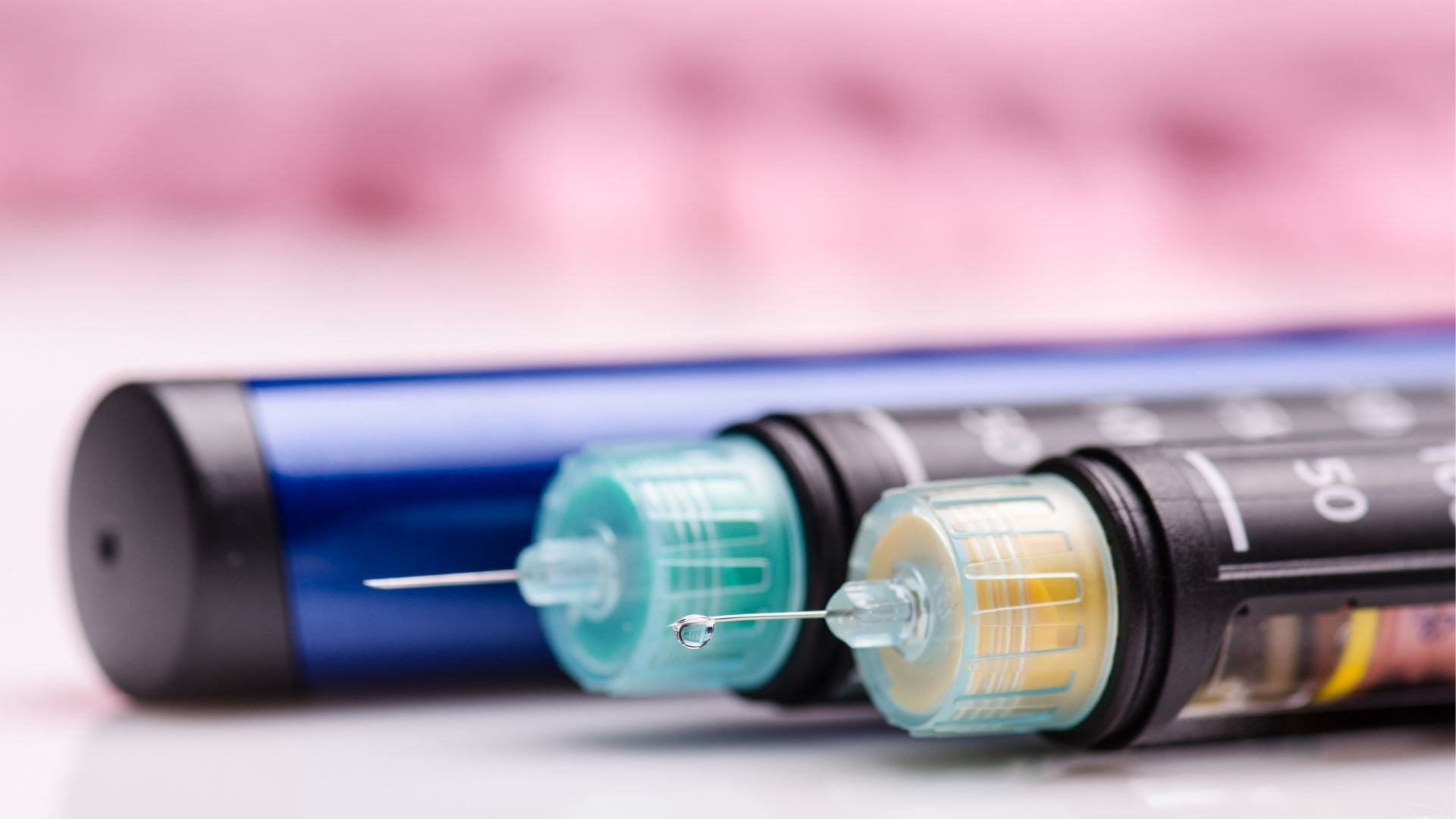
The third most prevalent reason for high morning blood sugar readings is declining insulin quantities, which implies your insulin levels are decreasing and no longer keeping your blood sugar in check. As a consequence, you wake up to an elevated reading.
High blood sugar levels can be indicative of diabetes, but not always. They are in association with low insulin and high glucagon. This hormone is secreted by the liver when it starts to sense that no glucose or nutrition is coming into your body via food.
Your blood sugar will rise if your insulin level drops too low overnight. The reasons for the reduction in insulin vary from person to person, but it’s most often due to an incorrect setting on your insulin pump or an insufficient long-acting (basal) dose. Insulin duration—the length of time the drug stays active in your body—is usually between 12 and 18 hours. However, if you inject long-acting insulin in the morning rather than at night, your blood sugar may fall too low during the afternoon or evening because of high activity levels.
Your basal dose is usually in reduction when you are ill to prevent high blood sugar due to illness-related stress on your body that requires glucose to fight off.
Testing High Blood Sugar Levels in Morning
After that, the doctor will usually begin by requiring a person to wear a continuous glucose monitor (CGM) for several nights in a row. If they don’t have access to a CGM, the doctor may ask them to check their blood sugar levels at specific intervals throughout the night. For purchase, there are home glucose testing kits available online.
other reasons for high blood sugar levels in the morning are as follows-
Diet
It’s crucial to remember that the meals you choose for supper may have an impact on your blood sugar levels in the morning. Eating high-carb dishes or snacking on sweets before bedtime might result in elevated morning blood sugar levels. Carbs that cause blood sugar to spikes, such as white bread and white pasta should be avoided.
If you want to munch on something before going to bed, go for a high-fiber food with protein or healthy fat like a tiny apple and a spoonful of natural peanut butter. This can help your blood sugar stay stable while you sleep.
Medications
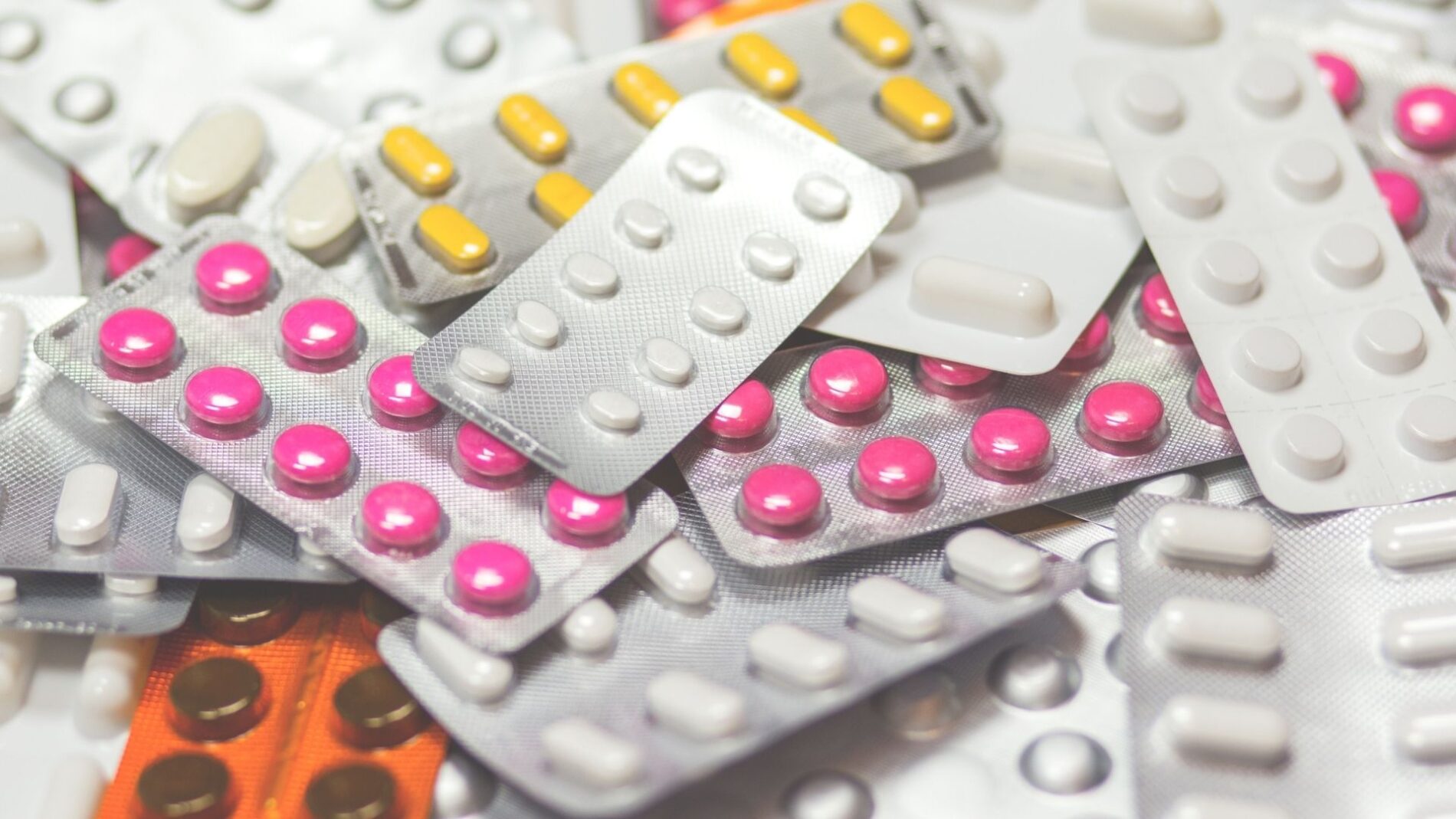
Ensure that you’re following dosing and timing instructions if your doctor has prescribed you blood sugar medication. Taking the incorrect dosage or consuming medicines at the wrong time can cause blood sugar swings. This results in higher morning blood sugar levels.
Lifestyle
Exercising and losing weight, if necessary, are some of the most effective methods to improve blood sugar control in people with prediabetes and type 2 diabetes. After eating, going for a walk can significantly lower blood sugar levels, which can help to maintain good blood sugar control. In individuals with prediabetes or diabetes, research shows that walking
Increasing your overall blood sugar control and lowering your chance of developing high blood sugar levels in the morning is achievable by eating meals that are correct for you, taking medications as direction, losing weight if necessary, and exercising — especially after meals.
Treating High Blood Sugar Levels in Morning
High blood sugar levels in the morning do not cause high concern. However, if high blood sugar is a recurring problem or you notice other symptoms near your high readings, it’s important to talk with your doctor about what could be causing high blood sugars throughout the day.
The best way to treat high glucose levels in the morning is to change the dosage and timing of insulin, as well as the manner that a person takes it.
Insulin is the most successful approach to managing blood sugar levels, but each patient’s therapy plan will be unique. To deliver the required doses at intervals. An insulin pump may be in use.
According to a recent study, adopting these health-related behaviors can also help:
- Increasing insulin sensitivity by exercising in the evenings. Increasing the proportion of protein to carbohydrates in the evening meal
- The doctor may prescribe a different dosage and schedule, depending on how glucose levels change, using some of these techniques to treat the Somogyi effect. The use of a CGM can assist him in making this decision.
Complications
Anyone who has unusually high blood sugar levels in the morning should see a medical professional. They will advise them on how to keep these levels at bay.
If a person does not get appropriate treatment. The dawn phenomenon can raise their risk of high blood sugar levels in the morning.
Conlcusion
As you can see, there are many factors that lead to high blood sugar levels in the morning. Fortunately, it’s easy enough to avoid these problems by making sure your diet includes plenty of fiber and protein throughout the day. so that your body will have a steady supply of glucose rather than just eating large meals at night before bed. And if you’re someone who has diabetes or prediabetes. Then speak to your doctor about what they recommend for managing their condition.
Do you want to get rid of diabetes? Join our online diabetes consultation program and reverse your Diabetes naturally through lifestyle changes such as a Personalized Diet plan, Exercise, dieticians, and health coaches.
